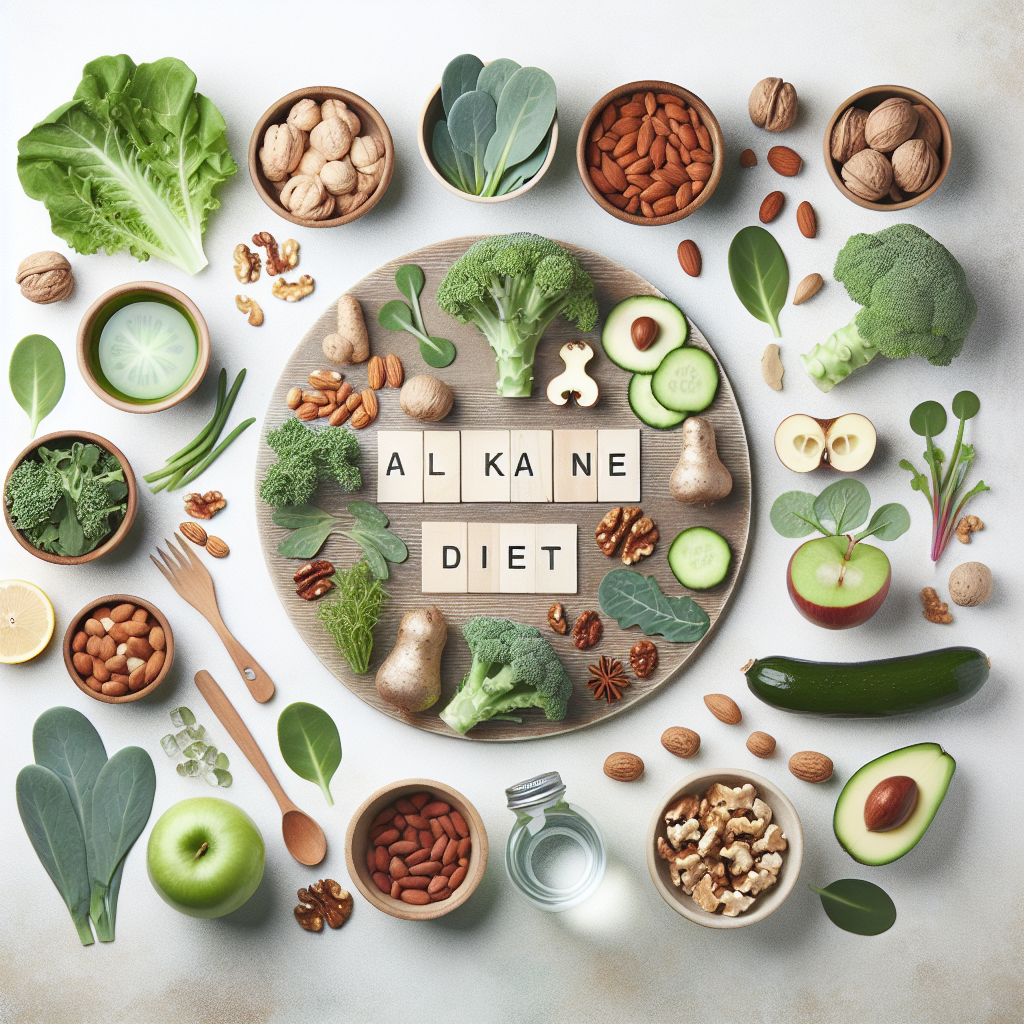Understanding Alkaline Diet: Essential Fundamentals Explained
“`html
Understanding Alkaline Diet: Essential Fundamentals Explained
The alkaline diet, often referred to as the alkaline ash diet or alkaline acid diet, has gained popularity for its potential health benefits, including weight loss, improved energy levels, and disease prevention. This diet is based on the premise that certain foods can affect the pH balance of the body, leading to various health outcomes. In this article, we will explore the essential fundamentals of the alkaline diet, how it works, its potential benefits, and any scientific evidence supporting its claims.
What is the Alkaline Diet?
The alkaline diet is based on the idea that the foods we eat can alter the pH balance of our bodies. The pH scale measures how acidic or alkaline a substance is, ranging from 0 to 14. A pH of 7 is considered neutral, below 7 is acidic, and above 7 is alkaline. The human body maintains a tightly regulated pH level of around 7.4 in the blood, which is slightly alkaline.
Proponents of the alkaline diet argue that consuming foods that leave an alkaline ash (byproduct) after digestion can help maintain a more alkaline body pH, which they believe can promote better health. The diet encourages the consumption of more fruits, vegetables, nuts, and legumes while reducing the intake of meat, dairy, processed foods, and refined grains.
How Does the Alkaline Diet Work?
The alkaline diet categorizes foods based on their potential renal acid load (PRAL), which estimates the acid or alkaline effect of foods on the body after digestion. Foods with a negative PRAL are considered alkaline-forming, while those with a positive PRAL are acid-forming.
Alkaline-Forming Foods
1. **Fruits and Vegetables:** These are generally alkaline-forming. Citrus fruits, despite being acidic in nature, are metabolized in a way that leaves an alkaline ash.
2. **Nuts and Seeds:** Almonds, chestnuts, and flaxseeds are examples of nuts and seeds that are considered alkaline.
3. **Legumes:** Lentils and other legumes are typically alkaline-forming.
4. **Herbal Teas:** These are often less acidic than traditional teas and coffee.
Acid-Forming Foods
1. **Meat and Poultry:** Beef, chicken, and other meats are acid-forming.
2. **Dairy Products:** Cheese, milk, and yogurt are considered acidic.
3. **Processed Foods:** Foods high in sugar, refined grains, and preservatives are often acid-forming.
4. **Alcohol and Caffeine:** These beverages are typically considered acidic.
Potential Benefits of the Alkaline Diet
Advocates of the alkaline diet claim several health benefits, including:
1. Improved Bone Health
Some studies suggest that an alkaline diet may help maintain bone health. The theory is that when the body is too acidic, it may leach calcium from bones to neutralize the acidity, potentially leading to bone loss. By consuming alkaline-forming foods, it is thought that one can preserve bone density.
2. Enhanced Kidney Function
The alkaline diet may reduce the acid load on the kidneys, potentially enhancing their function. This could be particularly beneficial for individuals with chronic kidney disease.
3. Reduced Risk of Chronic Diseases
An alkaline diet rich in fruits and vegetables is associated with a lower risk of chronic diseases, such as hypertension, heart disease, and diabetes, due to the high intake of nutrients and antioxidants.
4. Weight Loss
By emphasizing whole, plant-based foods and reducing processed foods, the alkaline diet can lead to weight loss. These foods are generally lower in calories and more filling, helping to reduce overall calorie intake.
5. Increased Energy Levels
Proponents claim that a more alkaline diet can lead to increased energy levels and reduced fatigue, although scientific evidence is limited.
Scientific Evidence and Criticisms
While the alkaline diet promotes healthy eating habits, such as increased fruit and vegetable intake, its scientific basis is often debated. Here are some considerations:
Lack of Evidence on pH Impact
The human body maintains a tightly regulated pH balance, and diet alone is unlikely to significantly alter blood pH. The kidneys and lungs play a crucial role in this regulation. Urine pH can change based on diet, but this does not reflect blood pH or overall body pH.
Misinterpretation of Acid-Base Balance
Critics argue that the diet misinterprets the body’s acid-base balance. The body can effectively manage pH levels through various mechanisms, and the notion that diet can drastically alter these levels is seen as oversimplified.
Potential Nutritional Deficiencies
By eliminating certain food groups, such as dairy and meat, individuals may be at risk of nutritional deficiencies, particularly in protein, calcium, and vitamin B12. It is essential to ensure a well-balanced intake of nutrients from plant-based sources or supplements.
Implementing the Alkaline Diet
For those interested in trying the alkaline diet, here are some practical tips:
1. Increase Fruit and Vegetable Intake
Focus on consuming a variety of fruits and vegetables to ensure a broad range of nutrients. Leafy greens, berries, bananas, and avocados are great options.
2. Choose Whole Grains
Opt for whole grains like quinoa, brown rice, and whole wheat bread instead of refined grains.
3. Limit Processed Foods
Reduce the intake of processed and packaged foods, which are often high in sugars and preservatives.
4. Stay Hydrated
Drink plenty of water and herbal teas. Limit caffeine and alcohol consumption.
5. Monitor Nutrient Intake
Ensure adequate intake of essential nutrients, especially protein, calcium, and vitamin B12, through plant-based sources or supplements.
Conclusion
The alkaline diet encourages a focus on fresh, whole foods, which can lead to improved health outcomes. While the direct impact of diet on blood pH is minimal, the emphasis on fruits, vegetables, and whole foods aligns with many general dietary recommendations for health and wellness. As with any diet, it is crucial to consider individual nutritional needs and consult with a healthcare professional before making significant dietary changes. By understanding the essential fundamentals of the alkaline diet, individuals can make informed decisions about incorporating its principles into their lifestyle for potential health benefits.
“`















Add comment